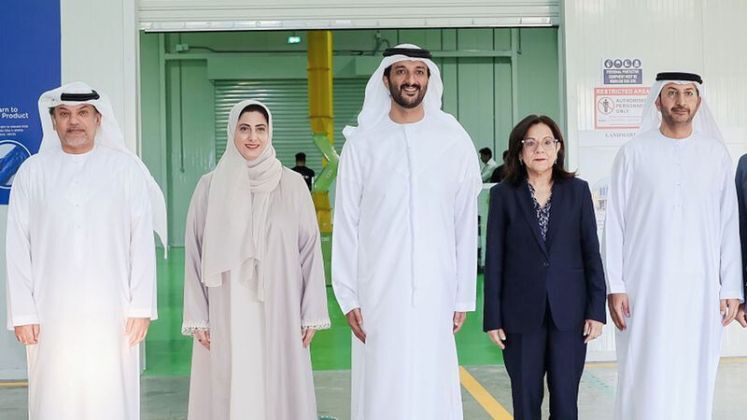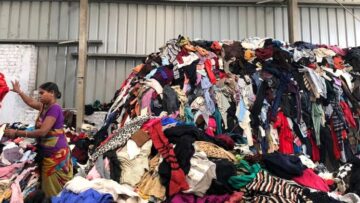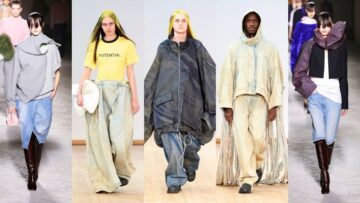
Landmark Group has inaugurated the first textile recycling facility in the region in Dubai World Central, marking a significant step towards waste reduction and sustainability promotion in the Middle East.
Key representatives from the UAE Circular Economy Council and the retail sector attended the ceremony, which was attended by UAE Minister of Economy Abdulla bin Touq Al Marri and Landmark Group chairwoman Renuka Jagtiani, who officially opened the state-of-the-art facility.
Landmark Circulife, the new facility, will process discarded textiles and fabrics to turn them into valuable recycled fibres that can be used again to create new items. These fibres will be utilised to make a variety of products, from clothing to home furnishings, which will help the area reduce its reliance on virgin materials and stop the textile waste loop.
Landmark Circulife is expected to have a major environmental impact by avoiding thousands of tonnes of garbage from getting up in landfills, with an initial capacity of 2,000 metric tonnes of textile waste annually.
The larger sustainability initiatives of Landmark Group heavily rely on this facility. By 2050, the company wants to be climate-positive throughout its whole value chain, and this facility is essential to that long-term goal.
In order to promote circularity in the fashion and textile industries, this facility is an essential step. The goal is to establish a closed-loop system that gives used textiles a second chance at life, which will help the environment and the people who rely on it, opined Renuka Jagtiani at the inauguration.
Landmark Circulife’s introduction is in line with the UAE’s larger Circular Economy Policy, which seeks to minimise waste, maximise resource utilisation, and promote sustainability in all sectors of the economy. Approximately 11,000 metric tonnes, or 5 per cent of the UAE’s textile waste, will be handled by the facility, which is set to grow significantly.
As a major contributor to the UAE’s efforts to reach its sustainability goals, it is anticipated to help reduce 140,000 metric tonnes of CO2 emissions over time, save 107 GWh of electricity, and conserve millions of litres of water.






